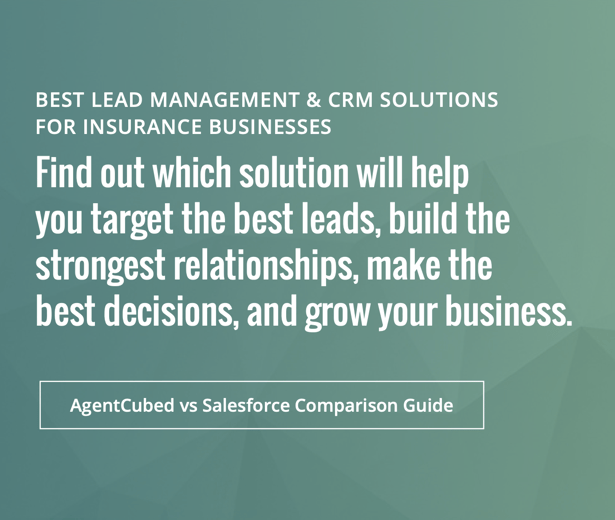As an independent insurance agency, one of the best things you can do is form an open line of communication between you and your P&C insurance carriers. When you're able to speak to P&C insurers about what their goals are and share your own goals with them, you can forge unique relationships where both of you better understand what the other wants and needs. If your relationships with your carriers are limited to associating only when onboarding a new client or putting through a policy renewal, then you can benefit from the various relationship-building tactics that we're going to discuss below.
Find Your Inner Circle
One big pitfall that many agencies fall victim to is trying to work with too many insurance carriers. While it's great to have options for your customers, you need to consider the whole cost. Trying to craft great relationships with 10 carriers can be overly time-consuming, and many may not even offer insurance that fits the needs of most of your customers. Even worse, their P&C commission may be too low to support your agency over the long term.
Rather, you should opt for limiting your P&C insurance carrier list to about five companies. You can do this by simply assessing your existing carrier list and getting rid of carriers that truly don't mesh with your company's needs anymore. Not all relationships are meant to be forever. When you limit your inner circle to companies that suit your agency’s needs, you can pick the two most profitable and focus on creating stellar relationships.
Assign Relationship Managers
While the sole purpose of your business is to sell P&C insurance, you need to invest in quality vendors and services to be successful. If, like most agency owners, you consider the idea of creating better quality relationships with your carriers a great one. However, you find it hard to find the time or capacity to embolden these relationships.
A great workaround is to sit down and assign at least one employee to be the relationship manager for each different insurance carrier. This helps to distribute the workload and ensures that there are enough people to craft the solid relationships that you need with your carriers.
Schedule Quarterly Calls
Make it a new must to schedule calls on a quarterly basis with each carrier. When this is mandatory, it helps to ensure that your staff consistently touches base with your carriers. These meetings should have a clear plan and schedule to ensure that both your staff member and insurance carrier feel as if the call was beneficial for both of them.
During these quarterly calls, it's time to check in with your insurance carrier to learn about any new developments or P&C insurance software that they may have. Go over your typical marketing plan and ask if the carrier has any insurance marketing tools that they've had success with from other agencies. Be sure to discuss the current status of your agency and your future plans. When insurance carriers are better able to understand your business, they can make more informed decisions on how to boost your success.
Consider Using Value-Added Services From Your Carriers
Many insurance carriers will offer value-added services to agencies like training programs, additional support offerings, and special financing. However, most agencies don't take advantage of these options for the simple fact that they're too busy to learn more about them. Don't be that agency.
During your quarterly calls, be sure to ask about any new value-added services that the insurance carrier may be offering. For example, they may offer training on insurance sales tools. Have staff members report back with the various additional services offered by your carriers and consider taking advantage of them. If it makes sense for your business, using these services can help to strengthen your bond with the insurance carrier, as well as provide value you can ultimately pass on to your customers.
Encourage Regular Feedback
Quality insurance carriers want to work with agencies that are consistently looking to get better and better going into the future. You can clearly position yourself as this type of agency by asking your insurance carriers to provide you with regular feedback. For example, ask them if they can prepare a report card that they can share with your company during your quarterly calls.
This will not only work to showcase to the insurer that your agency is willing to go the extra mile, but it will also allow you to understand your reputation with customers. Ask the carrier to be completely honest about any discrepancies with your business and be willing to work with them to enhance your existing relationship. The more you're open to feedback and trying new suggestions, the faster you're going to be able to create a path of success to write more business for your insurance agency.
Know Your Carrier's Ideal Customer
As you're discussing business with your insurance carriers, one area you definitely need to touch on is their ideal customer profile. Some carriers aren't into taking on risky clients, while others will work to onboard just about anyone that they can. It's imperative that you be mindful of what risk level your different carriers have.
This way, you're not wasting everybody's time by trying to push through clients to insurance carriers that are opposed to certain criteria they have identified as higher risk. The more you're able to understand an individual carrier's risk tolerance, the more often you're going to be able to send them clients that match their risk level and easily get approved.
When you're sending ideal customers to a carrier on a consistent basis, they're going to be more likely to respect and try to enhance your relationship going into the future because you're a valuable source of customers for them.
Keep A Respectful Bond With Underwriters
Pretty much every insurance agency can tell you at least one time when they were livid with an underwriter who wouldn't push through a particular client. No matter how well you get to know an insurance carrier and their underwriters, these times will happen. When they do, you need to be very careful with how you proceed.
It only takes one blow-up on an underwriter to threaten your entire relationship with the insurance carrier. When problems erupt, take the time to listen to their reasoning and try to learn from it going into the future so that you don't experience the same problem again. Be very careful not to be disrespectful to insurance underwriters, no matter how bad the situation is.
Opt to Undergo Regular Training
Most insurance carriers will release P&C software for their agencies. However, many agencies don't implement the software for a while, or they don't utilize the software to its fullest potential. You can ensure that your staff members stay up-to-date on new software and are able to use it correctly by scheduling regular training.
Insurance carriers are more than happy to be able to sit down and explain their programs to your staff members because they know that they'll be trained right. When your business regularly undergoes training, you put yourself in the position of being able to provide feedback to the insurer about their programs.
If there are areas where improvements can be made to enhance the general efficiency of your agents, such as digital onboarding, let the insurance carrier know. When insurance carriers see that your employees have undergone their own training program, they can be assured that they're using the software correctly. All of your feedback will be from a position of daily knowledge from the end user. This can be very beneficial for both you and the insurance carrier going into the future.
Taking your role as an independent insurance agency seriously means taking the time to formulate and continually strengthen your relationships with your insurance carriers. It's time to stop looking at these relationships as a necessity for doing business. Rather, they should be looked at as a beneficial way to grow your business and create satisfied customers.
By implementing some of the relationship-building tips that we went over above, you can work to transform your agency to have an ever-flourishing relationship with all of your insurance carriers.
 Login
Login



